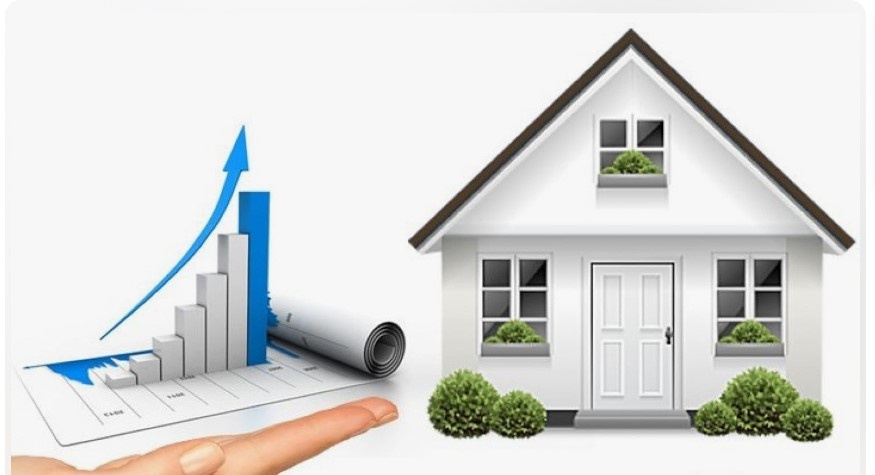Adding an extension to your property is a significant investment, but it can also greatly enhance your home's value. When done right, an extension can increase your living space, improve functionality, and boost your property's overall appeal. In this blog post, we'll explore how an extension can impact your home's value and what factors to consider when planning one.
The Impact of an Extension on Home Value
An extension can add substantial value to your home by increasing its overall square footage. Generally, the more living space a property offers, the higher its value on the real estate market. This is because larger homes are typically more desirable, providing ample room for families, home offices, or other needs.
However, the value added by an extension depends on several factors, including the quality of the construction, the materials used, and the design's integration with the existing property. A well-planned and expertly executed extension that seamlessly blends with the home's architecture and aesthetic can significantly boost its value.
Types of Extensions and Their Impact
Single-Story Extensions
Single-story extensions, such as ground-floor additions or sunrooms, are a popular choice for homeowners looking to expand their living space without significantly altering the property's footprint. These extensions can increase the value of your home by providing additional living areas, such as a larger kitchen, family room, or recreational space.
Multi-Story Extensions
Multi-story extensions, like adding a second floor or converting a loft, can significantly increase your home's value by providing extra bedrooms, bathrooms, or living areas. These types of extensions are particularly valuable in areas where square footage is at a premium, as they allow you to maximize the available space.
Basement Conversions
Basement conversions can transform an underutilized space into a functional living area, such as a home theater, gym, or guest suite. These extensions can add substantial value to your property, particularly in urban areas where outdoor space is limited.
Factors to Consider When Planning an Extension
Location and Market Demand
The location of your property and the local real estate market demand play a significant role in determining how much value an extension can add. In areas with high property values and strong demand for larger homes, an extension can yield a higher return on investment. Conversely, in areas with lower property values or weaker demand for additional space, the potential value increase may be more modest.
Quality of Construction and Design
The quality of the construction and design of your extension is crucial in determining its impact on your home's value. A poorly executed extension, with subpar materials or an awkward layout, may not add significant value and could even detract from your property's appeal. It's essential to work with reputable house renovation company London and experienced architects or designers to ensure a high-quality, well-integrated extension.
Zoning and Permit Requirements
Before embarking on an extension project, it's important to understand the local zoning laws and permit requirements. Failure to comply with these regulations could result in costly fines or even the need to demolish unauthorized structures, significantly impacting your investment.
Return on Investment (ROI)
When considering an extension, it's important to evaluate the potential return on investment (ROI). While extensions can add significant value to your home, they also involve substantial upfront costs. Working with a professional home extension company can help you estimate the potential ROI based on the type of extension, local market conditions, and other factors.
Pros and Cons of Adding an Extension
Pros:
- Increased living space and functionality
- Potential to add substantial value to your home
- Customized design to suit your needs and preferences
- Opportunity to incorporate modern features and amenities
- Ability to stay in your current neighborhood and avoid the costs of moving
Cons:
- Significant upfront costs for construction and materials
- Potential for disruption and inconvenience during the construction process
- Need to comply with local zoning laws and obtain necessary permits
- Possibility of compromising outdoor space or garden area
- Risk of overcapitalizing if the extension is not well-planned or executed
Maximize the Value of Your Extension
To ensure your extension adds maximum value to your home, consider the following tips:
- Work with experienced professionals, such as loft conversion company London and architects, to ensure a well-designed and integrated extension.
- Choose high-quality materials and finishes that complement the existing property.
- Incorporate energy-efficient features and modern amenities that appeal to potential buyers.
- Consider the needs and preferences of your target market when planning the extension.
- Obtain all necessary permits and ensure compliance with local regulations.
- Maintain a consistent style and aesthetic throughout the property.
FAQs
1. Will any extension add value to my home?
Not necessarily. The value added by an extension depends on various factors, including the quality of construction, design, location, and local market demand. A poorly executed or ill-conceived extension may not add significant value and could even detract from your property's appeal.
2. Do I need planning permission for an extension?
In most cases, yes. Most extensions require planning permission from your local authority to ensure compliance with zoning laws and building regulations. It's essential to obtain the necessary permits before starting construction.
3. How much value can an extension add to my home?
The value added by an extension can vary significantly depending on the type of extension, location, and local market conditions. As a general guideline, a well-designed and executed extension can add anywhere from 5% to 20% to your home's value.
4. Can I do the extension work myself?
While it may be tempting to take on an extension project yourself to save costs, it's generally not recommended unless you have extensive construction and renovation experience. Working with professional contractors and house extension specialists in wandsworth can ensure a high-quality result and mitigate potential issues or costly mistakes.
5. How long does it take to complete an extension?
The timeline for an extension project can vary greatly depending on the scope of work, size of the extension, and any potential delays or unforeseen issues. On average, a typical single-story extension can take 3-6 months to complete, while more complex multi-story additions or house extension wimbledon projects may take 6-12 months or longer.
By carefully planning your extension and considering factors like location, design, and construction quality, you can maximize the potential value added to your home. Whether you're looking to create additional living space, improve functionality, or enhance your property's overall appeal, a well-executed extension can be a worthwhile investment. Don't forget to consult with professionals like richmond loft conversion experts and experienced contractors to ensure a successful outcome.


No comments yet